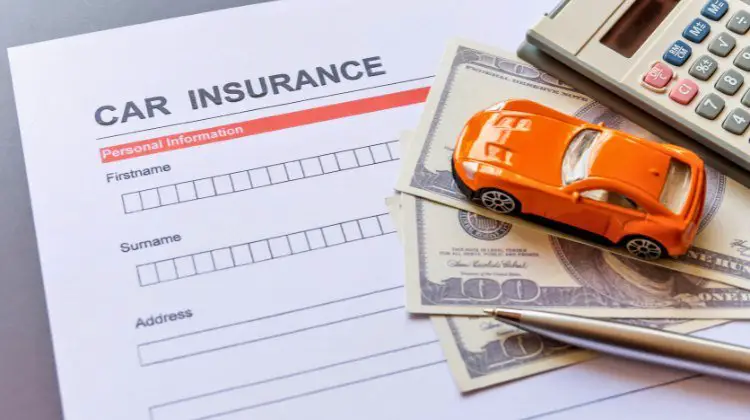You’ve built up a life for yourself. You have a home, maybe some savings, and you’re working hard for your future. But then a thought pops into your head, “Is it all protected?”
You’ve heard whispers about extra insurance, which makes you ask, do I need an umbrella insurance policy? It feels like another complicated financial product you have to figure out. But what if a single accident could wipe out everything you’ve worked for?
It’s a scary thought, but one that leads many people just like you to wonder, do I need an umbrella insurance policy? Let’s break it down in simple terms.
Table of Contents:
- What Is an Umbrella Policy Anyway?
- Why You Might Be a Bigger Target Than You Think
- So, Do I Need an Umbrella Insurance Policy for Real?
- How Much Umbrella Coverage Is Enough?
- What an Umbrella Policy Does Not Cover
- Finding the Right Policy for You
- Conclusion
What Is an Umbrella Policy Anyway?
Insurance terms can be confusing, but the name “umbrella policy” is actually pretty good. Imagine you’re walking in a downpour. You have your regular insurance policies, like your home and auto insurance.
Think of these as your jacket and boots, offering good protection for most everyday situations. But in a severe storm, your jacket might not be enough. That’s when you pull out an umbrella, which provides a much broader layer of coverage over everything else.
A personal umbrella insurance policy does the exact same thing. It sits on top of your existing liability coverage from your homeowners and car insurance. It kicks in when the limits of those policies are exhausted, offering an additional layer of liability insurance for those catastrophic, unexpected life events.
Going Beyond the Basics of Home and Auto
Your standard policies are great, but they have limits. Most auto insurance policies have liability limits of, say, $250,000 or $500,000 for bodily injury. If you cause a serious car accident, the medical bills and legal fees could easily soar past that number.
Who pays the difference? You do. Without extra protection, your assets are on the line, including your savings, investments, and even your home.
This is where the umbrella coverage steps in. It handles the liability costs that exceed your base policy limits, acting as a financial safety net for the worst-case scenario. This insurance cover can protect you from financial ruin after an unfortunate event.
What Does It Cover Specifically?
A personal umbrella policy extends your insurance coverage far beyond what your standard policies handle. It covers claims involving bodily injury and property damage, but also situations that are often excluded from other policies. These can include things like slander, libel, false arrest, and mental anguish.
For example, if your teenager writes a damaging review online that leads to a defamation lawsuit, your umbrella policy could cover the legal costs. It also provides protection if you are sued for wrongful death resulting from an accident. This broad protection is a core part of a sound personal finance strategy.
Why You Might Be a Bigger Target Than You Think
The more successful you become, the more you have to protect. Unfortunately, that also means you can become a target in civil lawsuits. It’s a sad reality of our society.
If you’re in an accident and the other party finds out you have significant assets, they might be more inclined to sue. They see your resources as a way to get a larger settlement. It feels unfair, but it happens all the time.
An umbrella policy shields your hard-earned assets from these situations. It shows you have an extra layer of financial defense, which can sometimes even deter frivolous lawsuits from the start. A good policy supports your long-term business continuity if you own a small business by protecting your personal assets from being seized.
A Real-Life Story of the Unexpected
Let me tell you about something that actually happened. A client of mine had a child in elementary school who, like many kids, sometimes made questionable decisions. One day after school, he threw a rock at the school bus, thinking it was a harmless prank.
The rock went through a window and hit another child, causing a cut on their face. The injury wasn’t severe, but it was going to leave a scar. The other parents were understandably upset and took their child to a plastic surgeon to minimize the scarring.
This whole ordeal became expensive, and the potential for a lawsuit loomed large. This strange situation, involving a personal injury, didn’t fit neatly under a standard home policy. Guess what saved the family financially? Their umbrella insurance policy covered the costs and protected their savings and home, proving its value in unpredictable circumstances.
So, Do I Need an Umbrella Insurance Policy for Real?
This is the big question, and the answer isn’t just for the ultra-wealthy. Many everyday people can benefit from this extra protection. You should seriously consider a personal umbrella if you fall into a few key categories.
If you have a healthy income, you need to protect your future earning potential. If you have assets like a home, savings, or retirement accounts, you need to shield them. The same goes for anyone who thinks they’ll have a much higher income down the road.
Let’s look at a few specific groups who should take a close look at getting an umbrella policy. Considering these factors is an important part of responsible personal finance planning.
Homeowners
As a homeowner, your property is a significant source of liability. What happens if a guest slips and falls by your swimming pool? Or if a delivery person trips on a crack in your walkway?
Your homeowners insurance, a type of property insurance, offers liability protection. But as we discussed, those limits can be reached quickly in a serious incident. An umbrella policy gives you peace of mind knowing your biggest asset is safe.
Parents of Teen or College-Age Drivers
Teenage drivers are statistically more likely to be in an accident. According to the Centers for Disease Control and Prevention, the risk for teen drivers is especially high during the first few months of having their license. If your child causes a major car accident, your family could be held liable.
Many people also overlook kids who are away at college. Even if they’re living in a dorm a thousand miles away, they are often still considered part of your household. Their actions could lead back to you financially.
A personal umbrella policy extends to cover these situations, giving you broad protection for your whole family. This coverage is crucial when your family includes higher-risk drivers.
Landlords and Rental Property Owners
If you own rental properties, your liability exposure increases significantly. You are responsible for maintaining a safe environment for your tenants and their guests. A slip-and-fall on your property or an incident related to property maintenance could lead to a major lawsuit.
While you should have landlord insurance, its liability limits might not be enough for a severe claim. An umbrella policy provides an extra layer of protection over all your properties. It is a vital tool for any real estate investor.
Coaches and Community Volunteers
Do you volunteer as a coach for youth sports or serve on a local non-profit board? These community-focused activities can, unfortunately, open you up to liability. An accidental injury during a game or a decision made as a board member could result in a lawsuit directed at you personally.
Many organizations have their own insurance, but it may not be sufficient. A personal umbrella policy can fill in the gaps. It protects your personal assets while you contribute to your community.
Anyone with Significant Assets or Income
This is the most straightforward reason. If your net worth exceeds the liability insurance limits on your home and auto policies, you have a gap in your coverage. Think about it: if your auto liability limit is $300,000 but your net worth is $700,000, you have $400,000 of unprotected assets.
An umbrella policy is designed to close that exact gap. This applies to your current assets and your future income, as a court can garnish future wages to satisfy a judgment. This means your financial future is at risk, not just what you own today.
| Scenario Details | Cost |
|---|---|
| Total Judgment from Lawsuit | $1,000,000 |
| Auto Insurance Liability Limit | $300,000 |
| Amount You Pay Out-of-Pocket (Without Umbrella) | $700,000 |
| Amount Paid by Umbrella Policy | $700,000 |
| Amount You Pay Out-of-Pocket (With Umbrella) | $0 |
How Much Umbrella Coverage Is Enough?
The general rule of thumb is simple: you should have an umbrella coverage amount that is at least equal to your net worth. This calculation protects all your current assets. This is a common strategy in fundamental analysis of one’s financial health.
To figure out your net worth, add up all your assets, including your home equity, savings accounts, retirement funds, and other investments. Then, subtract all your debts, like your mortgage, car loans, and student loans. The number you’re left with is your net worth.
The good news is that this insurance cover is often very affordable. A $1 million umbrella policy can cost just a few hundred dollars a year. That’s a small price to pay for such a large amount of protection and peace of mind.
Adjusting Coverage as Your Life Changes
As your net worth grows, you’ll want to increase your umbrella coverage. Going from $1 million to $2 million in coverage is usually not much more expensive. The costs tend to increase more significantly once you cross the $5 million threshold.
For most people, getting that first one to five million dollars of coverage is a great value. The Insurance Information Institute confirms that adding millions in coverage can often cost just a few hundred dollars. Regularly review your policy with your agent to ensure your protection keeps pace with your financial growth.
What an Umbrella Policy Does Not Cover
It’s also important to understand the exclusions. An umbrella policy is not a catch-all solution. For instance, it does not cover damage to your own property; that is the job of your home or property insurance.
It also won’t cover your own personal injuries. That’s what health insurance is for. Furthermore, business-related liabilities are typically excluded, as those require a separate commercial liability policy, an important part of a small business protection plan.
Finally, intentional or criminal acts are never covered. If you intentionally cause harm to someone or their property, your insurance company will not defend you or pay the claim. These policies are for accidents and negligence, not deliberate wrongdoing.
Differentiating from Other Policies
People sometimes confuse umbrella insurance with other types of coverage like life insurance. It is important to know the difference. Umbrella insurance protects your assets from lawsuits while you are alive.
In contrast, life insurance provides a financial payout to your beneficiaries after your death. Both are critical components of a comprehensive financial plan, but they serve entirely different purposes. Neither one can replace the other.
Finding the Right Policy for You
Most major insurance companies offer umbrella policies. It is often easiest to get one from the same provider that handles your home and auto insurance. Many companies offer a discount for bundling policies together.
You can also work with an independent insurance agent who can shop multiple carriers for you. An independent insurance professional can help you compare options and find the best fit for your budget and needs. They can also explain the fine print in a legal notice or producer compensation disclosure.
Conclusion
So, let’s circle back to our original question: do I need an umbrella insurance policy? If you own a home, have savings, coach youth sports, or worry about protecting your family’s future, the answer is likely yes. It’s an affordable way to add a powerful layer of protection over everything you’ve built.
An accident can happen in a split second, but the financial consequences of civil lawsuits can last a lifetime. Taking the step to explore your personal umbrella options can give you lasting peace of mind. For informational purposes, it is wise to consult a financial advisor or independent insurance agent.
Thinking through if do I need an umbrella insurance policy is one of the smartest financial moves you can make. It protects your current assets and secures the future you are working so hard to create. Don’t leave what you’ve earned exposed to a single unfortunate event.








Reader Interactions